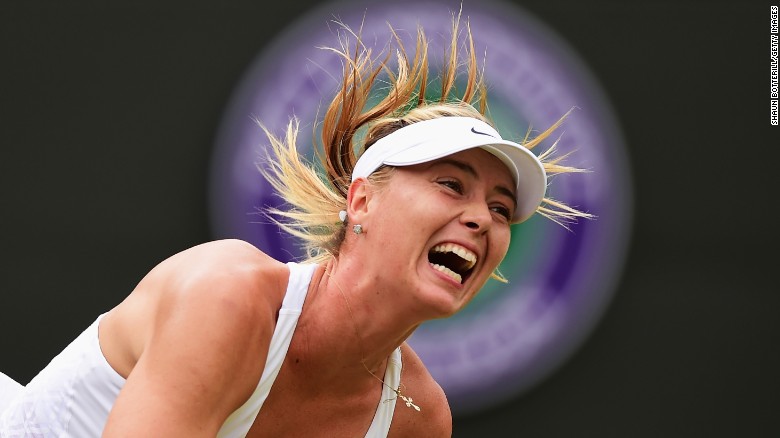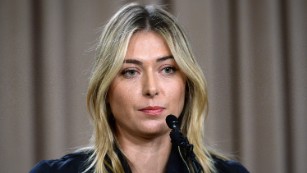Kremlin hits back in Maria Sharapova scandal
She's the $195 million athlete at the center of a failed drugs test scandal but tennis star Maria Sharapova isn't lacking for some heavy hitting support.
"Attempts to politicize sports, attempts to add character to sports of some kind of political instrument for achieving some aims, are destructive for sports, for international sports, and are unacceptable and inexcusable," presidential spokesman Dmitry Peskov told reporters on Wednesday.
The five-time grand slam winner revealed Monday that she had tested positive for a recently banned substance --meldonium -- at January's Australian Open. The 28-year-old Russian will be provisionally banned by the International Tennis Federation (ITF) on March 12.
Meldonium drug got Maria Sharapova a tennis suspension
Sharapova's admission comes after allegations of state-sponsored doping were made against the All-Russia Athletic Federation (ARAF) last year following a report from the World Anti-Doping Agency (WADA).
It led to ARAF being suspended from international competition last year by the International Association of Athletics Federations and plunged their chances of competing at the Rio de Janeiro Olympics into jeopardy.
"Of course, we regret this (new doping allegations)," added Peskov, referring to Sharapova, but the presidential spokesman warned that those claiming Sharapova's transgression is typical of Russian sport are wide of the mark.
"The situation should not be presented in such a way that it somehow casts a shadow on all Russian sports, on great achievements of our athletes," said Peskov.
Maria Sharapova: The unanswered questions
Sharapova is the highest-profile Russian star to be caught up in Russia's recent doping problems after she revealed she had failed a drugs test.
"For the past 10 years I have been given a medicine called mildronate by my doctor, my family doctor, and a few days ago after I received the ITF letter I found out that it also has another name, meldonium, which I did not know.
"It's very important for you to understand for 10 years this medicine was not on WADA's banned list and I had been legally taking the medicine for the past 10 years. But on January 1 the rules had changed and meldonium became a prohibited substance, which I had not known."
Sharapova would later say she began taking the medication, which can be used to treat heart issues, after irregular EKGs and being deficient in magnesium. Her family also has a history of diabetes, she added.
That Sharapova didn't check the updated list, however, has raised eyebrows. More surprising is the fact that, according to her lawyer John Haggerty, no one on her team did, either.
"Unfortunately no one from Maria's team looked at the 2016 banned list but had they done so they would have looked for mildronate and not found it on the list," Haggerty wrote in an email to CNN.
Her revelation came on the same day that Russia's Olympic ice dance gold medalist Ekaterina Bobrova said she failed a doping test for the same drug.
News Courtesy: www.cnn.com












